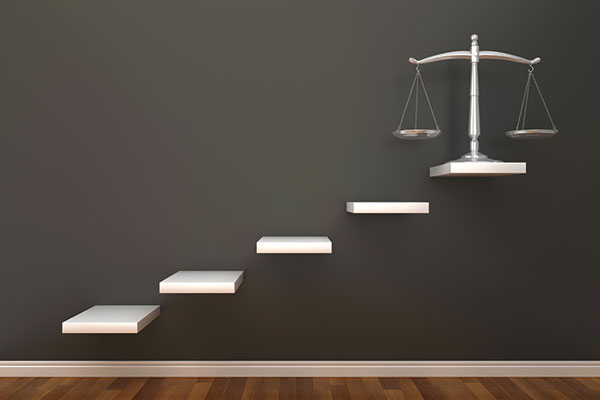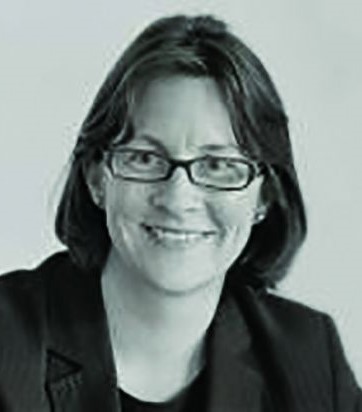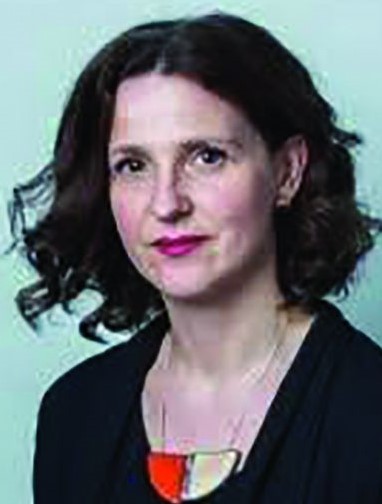*/

Unvarnished advice from four recent and atypical judicial appointees: HHJ Madeleine Reardon, HHJ Fayyaz Afzal OBE, Tribunal Judge Michelle Brewer and Mrs Justice Eady talk to Rehna Azim about why they took the plunge, retention and diversity challenges at Bar and Bench, and what they thought of the application experience
Judge: a public officer appointed to decide cases in a law court.
Judges have been around since the beginning of time. In the Old Testament religious leaders, who were called upon to dispense God’s law, are described as judges. Over the centuries, in England, justice has been a combination of local and royal government.
The ‘judiciary’ is still changing and evolving today, to meet the needs of society, as it, too, changes and evolves.
I’ve had the pleasure of interviewing four newly appointed judges, asking them a series of questions: whether judicial office was an early ambition or a consideration that came later in their career; what the draw of the job was; what qualities they had admired in judges they appeared before as practitioners; their views about the application process; and which aspects of the judicial role they relish.
It’s striking how many firsts there are among the group; the first in the family to go to university or become a lawyer, the first blind, Asian judge. This goes against a common public perception that all judges come from the same background or a long line of lawyers who pass down some sort of judicial baton as a family heirloom.

HHJ Reardon didn’t know any lawyers growing up. She considered the law as a possible career because she thought she might enjoy it (‘life is too short to work hard at something you don’t enjoy’). Mini pupillages gave her a feel for the profession and though family law work was seen as ‘messy stressful and underpaid’, it’s where she was ‘led by the nose’ and has stayed.
A judicial position was not an early ambition. She remembers feeling profoundly relieved she wouldn’t be the person responsible for making the final decisions. Over time, however, as she gained more confidence, she began to wonder what the role might feel like.
An admirer of the late DJ, Nick Crichton, who set up FDAC (Family Drug and Alcohol Courts), she was struck by how much he wanted to do the right thing. ‘He was always focused on whoever was in front of him. It made people trust him. Even parents who lost their children during the proceedings, left his court feeling they had been heard. As a practitioner, I was always impressed with judges who listened, then gave a clear, unequivocal and concise decision. It sounds so simple but I know now that it’s much harder than it looks, especially in the family court when things regularly veer off in unexpected directions.’
So, she took the plunge and was appointed as a DDJ, then, a Recorder and Circuit judge in 2018. Overall, she found the application process evidence-based and therefore generally fair, although somewhat impersonal. On the induction course for the DDJ position she was struck by how few of the people in the hall looked like the traditional image of a judge. Her advice to anyone thinking of applying is, ‘get in there early and try it out. If you can enjoy being outside your comfort zone you know it’s the right job for you.’
She admits she is now totally hooked on her new role. ‘It’s a completely different mindset and skills. Although, of course, you draw on your experiences as a practitioner. The real revelation for me is the sense of freedom I have of not being constrained by my instructions and being able to explore a problem from all sides.’
Problems of retention at the Bar are likely because ‘it can be a gruelling and unpredictable lifestyle, particularly if you’re a parent. But it can get easier. As more senior counsel you can manage your practice in a way that suits your life. The culture of the Bar has changed a lot since I had my first child and we need to make sure that progress continues.’

TV shows such as Kavanagh QC and LA Law drew Judge Afzal OBE to the Bar but it was the ‘nudging’ of supportive local judges that led him in the direction of the judiciary. He recalls being asked to stay back after a hearing. Fearing he had done something wrong, he started mentally composing apologies, only to be asked if he had considered judicial office. Having considered it, he successfully applied for the role of Deputy District Judge.
Encouragement from the judges was a major factor in his decision. ‘Their faith in me mattered a lot, it was a confidence boost and helped me put doubts aside.’
He found the application process open and fair: ‘Candidates for fee paid positions all sit the same qualifying test and are shortlisted objectively. I do think the time it takes for outcomes to be confirmed could be shorter, especially for salaried posts. But I think the process is fair to all applicants and I haven’t seen any disadvantages for those from non-traditional social or ethnic backgrounds for a career at the Bar and judicial appointment. I, myself, am Asian, the first in my family to go to university and didn’t have access to lawyers to receive guidance from. I’m also registered blind. As a disabled candidate, I felt that the request for reasonable adjustments was dealt with well.’
He is equally positive about his new role: ‘I love being part of a judiciary respected throughout the world, being trusted to make serious, life changing decisions and resolving cases in final terms. Unlike self-employed practice there’s job security, predictable working hours and paid holidays. The tougher side is the demands on limited time. There is an ever-increasing volume of work and it’s hard to say no because you do want to help out. ‘
To those considering judicial life he suggests shadowing a judge to see what it’s like: ‘Many candidates initially fear the decision-making but quickly realise they already have the skills for it from practice, plus there are excellent induction and training programmes. I teach on the PAJE [Pre-Application Judicial Education] Programme which is a series of workshops designed to challenge some of the myths and to give candidates from non-traditional backgrounds an opportunity to learn more about the role and application process.’
His work on the Bar Council’s Equality and Diversity Committee showed him that retention at the Bar is a problem. He hopes the increased use of remote hearings, reduction of travel and increased focus on wellbeing can improve this.

‘It is our lived experiences which help shape the type of lawyer or judge that we will become. It’s important not to discount those experiences, just because they don’t fit into what we think a barrister or judge should sound or look like.’
Michelle Brewer was born to a teenage single mother and lived on a council estate until the age of 11. The family was on benefits and came (proudly) from a line of miners and dockyard workers.
Judicial office wasn’t something she considered until she shadowed a Court of Appeal judge for a week when she was at the Bar. Even then, she didn’t think it would happen for many years. However, the constant juggling of work and homelife; working during holidays, at weekends and in the evenings led her to re-think her career path: ‘The Bar is a challenging and demanding profession and these demands can be difficult to juggle when you’re raising children. Court deadlines don’t accommodate school pick-ups, poorly children and other domestic realities people experience.’
Being a judge would allow her to continue doing work she loved, gain new and different skills and hopefully achieve a better work/life balance.
She had long been inspired by Supreme Court Justice Ruth Bader Ginsburg, both by her practice and judgments, such as US versus Virginia 1996, majority judgment striking down the all-male admissions policy at Virginia military Institute. Closer to home she admired Baroness Hale and sent the paper 100 years of women in the law to every female friend in practice.
More generally she admired judges who listened and engaged with the lay parties and put them at ease. ‘In practice I often represented vulnerable individuals and it made a significant difference when the judge took the time to ensure that the lay clients knew what was going on in the hearings.’
Her experience of the judicial application process was positive. In terms of diversity at the Bar and upper levels of the judiciary, she says, the question is how we reach out to unrepresented sections of society and improve their access to employment in the profession. ‘The barriers to the profession may be insurmountable to families from impoverished backgrounds and that’s without taking into account the intersection of this poverty with features such as gender, ethnicity, sexuality and disability.’
To anyone considering applying for judicial office she would say ‘commit 100% to engaging with the process. It’s challenging but worth it. Speak to judges to get an unvarnished feel for what it’s like do the work.’

Justice Eady was one of the first in her family to stay at school after the age of 14 or go to university and the first to have gone into law. She became a High Court judge in 2019, having taken silk and sat as a senior circuit judge at the Employment Appeal Tribunal.
A judicial role was not an early aspiration but as an independent member of the ACAS council, she liked not always having to take a side. A judicial position was an obvious way of achieving this.
She found the self-assessment in the application form tough but helpful: ‘It forces you to carry out a detailed appraisal of your career so you can select examples that might demonstrate your suitability for judicial post.’
Lack of diversity of background amongst judges, particularly at senior levels, is not due to the application process, she says, rather the pool from which applicants are drawn. ‘Unless you have a career judiciary, inevitably, judicial diversity will be dependent on the representation of different groups within the profession.’
As a practitioner she admired decisiveness and good case management skills in the judges she appeared before. Judges who delayed making decisions, sat on the fence when a clear decision was needed or did not exercise clear control over a hearing, frustrated her.
Her advice to anyone considering a judicial position? ‘Get a sense of the job by sitting in with a judge and asking questions. Don’t only apply for a post in your area of expertise. Judicial skills are transferable. It’s good to build up confidence and sit in new and unfamiliar jurisdictions. Be brutally honest with yourself about your strengths and weaknesses and try to address any obvious gaps in your experience. However, don’t engage in self-censorship; you won’t get a judicial job if you don’t apply!
‘Judicial work can be challenging; moving from a case in the admin court to presiding over a murder trial, recently, meant shifting focus from one to the other, rapidly, but I feel privileged to have the opportunity to experience such variety at this level.’
About retention problems at the Bar, she says: ‘There are particular pressures on those in publicly funded areas such as crime and family law. There’s also a problem with women leaving due to caring responsibilities, which affects numbers at the senior end of the profession.’

Judge: a public officer appointed to decide cases in a law court.
Judges have been around since the beginning of time. In the Old Testament religious leaders, who were called upon to dispense God’s law, are described as judges. Over the centuries, in England, justice has been a combination of local and royal government.
The ‘judiciary’ is still changing and evolving today, to meet the needs of society, as it, too, changes and evolves.
I’ve had the pleasure of interviewing four newly appointed judges, asking them a series of questions: whether judicial office was an early ambition or a consideration that came later in their career; what the draw of the job was; what qualities they had admired in judges they appeared before as practitioners; their views about the application process; and which aspects of the judicial role they relish.
It’s striking how many firsts there are among the group; the first in the family to go to university or become a lawyer, the first blind, Asian judge. This goes against a common public perception that all judges come from the same background or a long line of lawyers who pass down some sort of judicial baton as a family heirloom.

HHJ Reardon didn’t know any lawyers growing up. She considered the law as a possible career because she thought she might enjoy it (‘life is too short to work hard at something you don’t enjoy’). Mini pupillages gave her a feel for the profession and though family law work was seen as ‘messy stressful and underpaid’, it’s where she was ‘led by the nose’ and has stayed.
A judicial position was not an early ambition. She remembers feeling profoundly relieved she wouldn’t be the person responsible for making the final decisions. Over time, however, as she gained more confidence, she began to wonder what the role might feel like.
An admirer of the late DJ, Nick Crichton, who set up FDAC (Family Drug and Alcohol Courts), she was struck by how much he wanted to do the right thing. ‘He was always focused on whoever was in front of him. It made people trust him. Even parents who lost their children during the proceedings, left his court feeling they had been heard. As a practitioner, I was always impressed with judges who listened, then gave a clear, unequivocal and concise decision. It sounds so simple but I know now that it’s much harder than it looks, especially in the family court when things regularly veer off in unexpected directions.’
So, she took the plunge and was appointed as a DDJ, then, a Recorder and Circuit judge in 2018. Overall, she found the application process evidence-based and therefore generally fair, although somewhat impersonal. On the induction course for the DDJ position she was struck by how few of the people in the hall looked like the traditional image of a judge. Her advice to anyone thinking of applying is, ‘get in there early and try it out. If you can enjoy being outside your comfort zone you know it’s the right job for you.’
She admits she is now totally hooked on her new role. ‘It’s a completely different mindset and skills. Although, of course, you draw on your experiences as a practitioner. The real revelation for me is the sense of freedom I have of not being constrained by my instructions and being able to explore a problem from all sides.’
Problems of retention at the Bar are likely because ‘it can be a gruelling and unpredictable lifestyle, particularly if you’re a parent. But it can get easier. As more senior counsel you can manage your practice in a way that suits your life. The culture of the Bar has changed a lot since I had my first child and we need to make sure that progress continues.’

TV shows such as Kavanagh QC and LA Law drew Judge Afzal OBE to the Bar but it was the ‘nudging’ of supportive local judges that led him in the direction of the judiciary. He recalls being asked to stay back after a hearing. Fearing he had done something wrong, he started mentally composing apologies, only to be asked if he had considered judicial office. Having considered it, he successfully applied for the role of Deputy District Judge.
Encouragement from the judges was a major factor in his decision. ‘Their faith in me mattered a lot, it was a confidence boost and helped me put doubts aside.’
He found the application process open and fair: ‘Candidates for fee paid positions all sit the same qualifying test and are shortlisted objectively. I do think the time it takes for outcomes to be confirmed could be shorter, especially for salaried posts. But I think the process is fair to all applicants and I haven’t seen any disadvantages for those from non-traditional social or ethnic backgrounds for a career at the Bar and judicial appointment. I, myself, am Asian, the first in my family to go to university and didn’t have access to lawyers to receive guidance from. I’m also registered blind. As a disabled candidate, I felt that the request for reasonable adjustments was dealt with well.’
He is equally positive about his new role: ‘I love being part of a judiciary respected throughout the world, being trusted to make serious, life changing decisions and resolving cases in final terms. Unlike self-employed practice there’s job security, predictable working hours and paid holidays. The tougher side is the demands on limited time. There is an ever-increasing volume of work and it’s hard to say no because you do want to help out. ‘
To those considering judicial life he suggests shadowing a judge to see what it’s like: ‘Many candidates initially fear the decision-making but quickly realise they already have the skills for it from practice, plus there are excellent induction and training programmes. I teach on the PAJE [Pre-Application Judicial Education] Programme which is a series of workshops designed to challenge some of the myths and to give candidates from non-traditional backgrounds an opportunity to learn more about the role and application process.’
His work on the Bar Council’s Equality and Diversity Committee showed him that retention at the Bar is a problem. He hopes the increased use of remote hearings, reduction of travel and increased focus on wellbeing can improve this.

‘It is our lived experiences which help shape the type of lawyer or judge that we will become. It’s important not to discount those experiences, just because they don’t fit into what we think a barrister or judge should sound or look like.’
Michelle Brewer was born to a teenage single mother and lived on a council estate until the age of 11. The family was on benefits and came (proudly) from a line of miners and dockyard workers.
Judicial office wasn’t something she considered until she shadowed a Court of Appeal judge for a week when she was at the Bar. Even then, she didn’t think it would happen for many years. However, the constant juggling of work and homelife; working during holidays, at weekends and in the evenings led her to re-think her career path: ‘The Bar is a challenging and demanding profession and these demands can be difficult to juggle when you’re raising children. Court deadlines don’t accommodate school pick-ups, poorly children and other domestic realities people experience.’
Being a judge would allow her to continue doing work she loved, gain new and different skills and hopefully achieve a better work/life balance.
She had long been inspired by Supreme Court Justice Ruth Bader Ginsburg, both by her practice and judgments, such as US versus Virginia 1996, majority judgment striking down the all-male admissions policy at Virginia military Institute. Closer to home she admired Baroness Hale and sent the paper 100 years of women in the law to every female friend in practice.
More generally she admired judges who listened and engaged with the lay parties and put them at ease. ‘In practice I often represented vulnerable individuals and it made a significant difference when the judge took the time to ensure that the lay clients knew what was going on in the hearings.’
Her experience of the judicial application process was positive. In terms of diversity at the Bar and upper levels of the judiciary, she says, the question is how we reach out to unrepresented sections of society and improve their access to employment in the profession. ‘The barriers to the profession may be insurmountable to families from impoverished backgrounds and that’s without taking into account the intersection of this poverty with features such as gender, ethnicity, sexuality and disability.’
To anyone considering applying for judicial office she would say ‘commit 100% to engaging with the process. It’s challenging but worth it. Speak to judges to get an unvarnished feel for what it’s like do the work.’

Justice Eady was one of the first in her family to stay at school after the age of 14 or go to university and the first to have gone into law. She became a High Court judge in 2019, having taken silk and sat as a senior circuit judge at the Employment Appeal Tribunal.
A judicial role was not an early aspiration but as an independent member of the ACAS council, she liked not always having to take a side. A judicial position was an obvious way of achieving this.
She found the self-assessment in the application form tough but helpful: ‘It forces you to carry out a detailed appraisal of your career so you can select examples that might demonstrate your suitability for judicial post.’
Lack of diversity of background amongst judges, particularly at senior levels, is not due to the application process, she says, rather the pool from which applicants are drawn. ‘Unless you have a career judiciary, inevitably, judicial diversity will be dependent on the representation of different groups within the profession.’
As a practitioner she admired decisiveness and good case management skills in the judges she appeared before. Judges who delayed making decisions, sat on the fence when a clear decision was needed or did not exercise clear control over a hearing, frustrated her.
Her advice to anyone considering a judicial position? ‘Get a sense of the job by sitting in with a judge and asking questions. Don’t only apply for a post in your area of expertise. Judicial skills are transferable. It’s good to build up confidence and sit in new and unfamiliar jurisdictions. Be brutally honest with yourself about your strengths and weaknesses and try to address any obvious gaps in your experience. However, don’t engage in self-censorship; you won’t get a judicial job if you don’t apply!
‘Judicial work can be challenging; moving from a case in the admin court to presiding over a murder trial, recently, meant shifting focus from one to the other, rapidly, but I feel privileged to have the opportunity to experience such variety at this level.’
About retention problems at the Bar, she says: ‘There are particular pressures on those in publicly funded areas such as crime and family law. There’s also a problem with women leaving due to caring responsibilities, which affects numbers at the senior end of the profession.’
Unvarnished advice from four recent and atypical judicial appointees: HHJ Madeleine Reardon, HHJ Fayyaz Afzal OBE, Tribunal Judge Michelle Brewer and Mrs Justice Eady talk to Rehna Azim about why they took the plunge, retention and diversity challenges at Bar and Bench, and what they thought of the application experience


The Bar Council is ready to support a turn to the efficiencies that will make a difference
By Louise Crush of Westgate Wealth Management
Marie Law, Director of Toxicology at AlphaBiolabs, examines the latest ONS data on drug misuse and its implications for toxicology testing in family law cases
An interview with Rob Wagg, CEO of New Park Court Chambers
What meaningful steps can you take in 2026 to advance your legal career? asks Thomas Cowan of St Pauls Chambers
Marie Law, Director of Toxicology at AlphaBiolabs, explains why drugs may appear in test results, despite the donor denying use of them
The appointments of 96 new King’s Counsel (also known as silk) are announced today
Ready for the new way to do tax returns? David Southern KC continues his series explaining the impact on barristers. In part 2, a worked example shows the specific practicalities of adapting to the new system
Resolution of the criminal justice crisis does not lie in reheating old ideas that have been roundly rejected before, say Ed Vickers KC, Faras Baloch and Katie Bacon
With pupillage application season under way, Laura Wright reflects on her route to ‘tech barrister’ and offers advice for those aiming at a career at the Bar
Jury-less trial proposals threaten fairness, legitimacy and democracy without ending the backlog, writes Professor Cheryl Thomas KC (Hon), the UK’s leading expert on juries, judges and courts